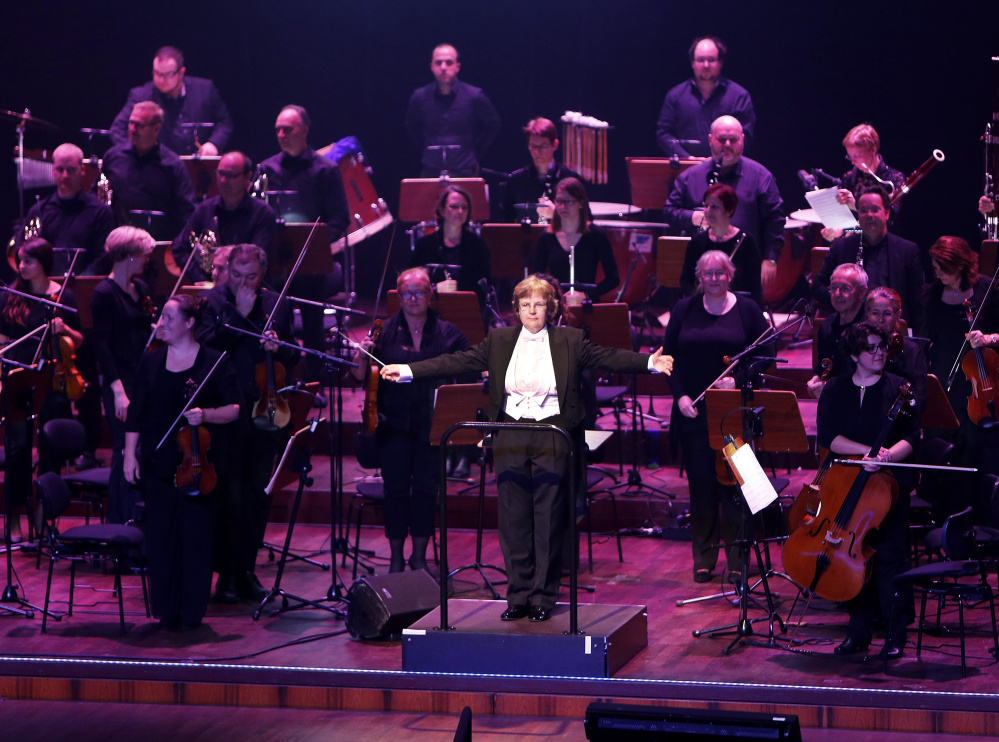FRANKFURT, Germany — Can performing Beethoven symphonies together help employees team up on projects at work, too? Some companies – above all in Germany and Asia – seem to think so.
A conspicuous number of big German corporate names — along with a handful in Japan and Korea — have their own company-linked symphony orchestra. That means 60 or so accountants, engineers, sales reps and computer specialists who bring violins, cellos, oboes and trombones and gather in their spare time to rehearse and perform lengthy, complex pieces of classical music.
The orchestras serve as public relations tools, playing charity concerts and livening up corporate events.
But there’s more to it than that. It’s hard to quantify, but the engineer and accountant musicians — and some business experts — argue that a symphony orchestra is an excellent model for the creative teamwork companies need to compete.”There’s no activity in the world where you have to react so quickly to each other and work together so well as in an orchestra,” says Johanna Weitkamp, conductor of the symphony orchestra at the enterprise software company SAP.
“Down to the hundredth of a second, you have to listen to the other person, respond to the other person, pass the ball to each other — it’s a prime example of good cooperation among people.”
Other companies with employee orchestras include engineering firm Siemens, maker of trains and medical scanners; carmakers Daimler, BMW and Ford; auto components and electronics maker Robert Bosch GmbH; airline Lufthansa, and chemical firm BASF.
At a recent rehearsal, Weitkamp and the SAP musicians filled the cavernous, 2,300-seat Rosengarten auditorium in the southwestern German town of Mannheim with rich, warm string sound, practicing first a bouncy pop mix of Mozart’s Prague Symphony and Falco’s “Rock Me Amadeus.” Then the brass blared out the stirring opening notes of John Williams’ theme music for the Olympics, as the orchestra prepared to play at a graduation ceremony for the local college.
Most of the orchestras seemed to have started from the bottom up, from employee initiatives. The SAP orchestra started after Weitkamp joined the company in 1997 and noticed that there were a lot of skilled amateur musicians among her colleagues. “I asked, who wants to join in,” she said.
Weitkamp said it’s no surprise that people with math or technology backgrounds are often musical: “You need a high degree of abstract thinking to understand how music functions, and I think there’s a connection that exactly in this field you find so many people who can play violin, oboe, bassoon, clarinet, flute or horn.”
Management expert Christian Scholz at Saarland University in Saarbruecken says an orchestra embodies the complex blend of skills needed for business teams to perform at a high level.
“It’s team building, but it’s team building in a highly structured way, like a business runs,” he said. “You have democracy, you have hierarchy, you have all these elements of regular business in this task of doing a symphony orchestra.”
Different companies have different approaches to supporting employee orchestras, ranging from SAP and Daimler, which provide company funding, to BASF, where the employee orchestra, the Collegium Musicum Ludwigshafen, is financially independent and supported by musician dues. While the SAP orchestra is semi-professional, others – like those at Bosch and Lufthansa – are strictly amateur.
Company orchestras also can be found in Japan, Korea, and Taiwan.
In Asia, the science and technology theme pops up again: companies with orchestras in Korea include electronics and chemicals conglomerate LG and automaker Hyundai Motor Group, and Sony, Hitachi and Toshiba in Japan.
At Bosch, Georg Blume, a 37-year company veteran and a cellist, says the orchestra is “a platform for informal exchange among employees, which in an organization as large as Bosch is very important, because the organization doesn’t just function according to reporting lines – but through colleagues getting to know one another.”
Send questions/comments to the editors.



Success. Please wait for the page to reload. If the page does not reload within 5 seconds, please refresh the page.
Enter your email and password to access comments.
Hi, to comment on stories you must . This profile is in addition to your subscription and website login.
Already have a commenting profile? .
Invalid username/password.
Please check your email to confirm and complete your registration.
Only subscribers are eligible to post comments. Please subscribe or login first for digital access. Here’s why.
Use the form below to reset your password. When you've submitted your account email, we will send an email with a reset code.